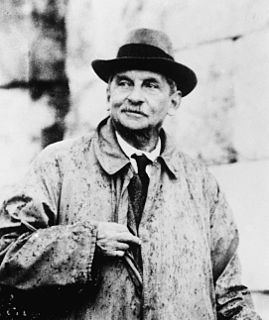A Quote by Lewis H. Lapham
Leadership consists not in degrees of technique but in traits of character.
Related Quotes
Character in many ways is everything in leadership. It is made up of many things, but I would say character is really integrity. When you delegate something to a subordinate, for example, it is absolutely your responsibility, and he must understand this. You as a leader must take complete responsibility for what the subordinate does. I once said, as a sort of wisecrack, that leadership consists of nothing but taking responsibility for everything that goes wrong and giving your subordinates credit for everything that goes well.
Leadership is not so much about technique and methods as it is about opening the heart. Leadership is about inspiration-of oneself and of others. Great leadership is about human experiences, not processes. Leadership is not a formula or a program, it is a human activity that comes from the heart and considers the hearts of others. It is an attitude, not a routine.
Modern schools and universities push students into habits of depersonalized learning, alienation from nature and sexuality, obedience to hierarchy, fear of authority, self-objectification, and chilling competitiveness. These character traits are the essence of the twisted personality-type of modern industrialism. They are precisely the character traits needed to maintain a social system that is utterly out of touch with nature, sexuality and real human needs.



































